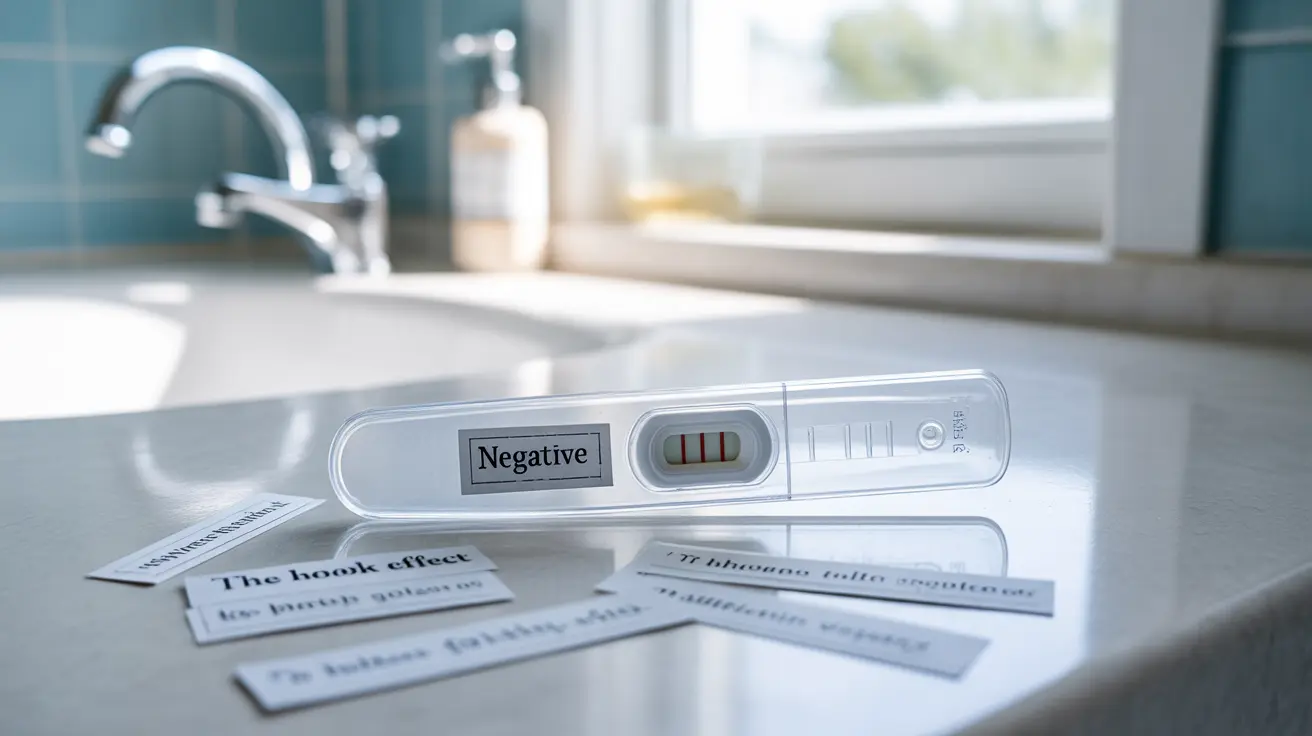Finding out you're pregnant is a significant life moment, but what happens when you suspect pregnancy yet continue to get negative test results, even at three months? This puzzling situation can be both confusing and concerning for many women. Understanding why this occurs and what steps to take next is crucial for proper prenatal care.
While home pregnancy tests are generally reliable, certain factors can affect their accuracy, even during later stages of pregnancy. Let's explore the reasons behind false-negative results and what you should do if you find yourself in this situation.
Understanding False-Negative Pregnancy Tests
A false-negative pregnancy test occurs when the test shows a negative result despite an actual pregnancy. Several factors can contribute to this unexpected outcome, even at three months into pregnancy.
The Hook Effect Explained
One of the most common reasons for a negative test at three months is the hook effect. This phenomenon occurs when extremely high levels of pregnancy hormones (hCG) actually overwhelm the test's ability to detect them correctly, resulting in a false-negative result. This scientific quirk typically occurs during later stages of pregnancy when hormone levels are particularly high.
Other Causes of False-Negative Results
Several other factors can lead to incorrect test results:
- Testing too early in the day when hormone levels are diluted
- Using expired pregnancy tests
- Not following test instructions correctly
- Certain medications affecting hormone levels
- Medical conditions impacting hormone production
Multiple Pregnancies and Test Results
Interestingly, carrying twins or multiples can sometimes affect pregnancy test results. While multiple pregnancies typically produce higher levels of hCG, this can paradoxically lead to false-negative results due to the hook effect. This situation particularly affects women carrying multiple fetuses due to their increased hormone levels.
Professional Medical Confirmation
When home pregnancy tests provide confusing or contradictory results, healthcare providers have several reliable methods to confirm pregnancy:
- Blood tests measuring exact hCG levels
- Transvaginal or abdominal ultrasound
- Physical examination
- Serial hCG testing to track hormone changes
When to Seek Medical Help
If you're experiencing pregnancy symptoms but getting negative test results, consider these warning signs that indicate you should seek immediate medical attention:
- Missed periods for three months or more
- Persistent pregnancy symptoms
- Unusual cramping or abdominal pain
- Nausea and vomiting
- Breast changes or tenderness
Frequently Asked Questions
Why can I be three months pregnant and still get a negative pregnancy test result?
You can get a negative result at three months due to the hook effect, where extremely high levels of pregnancy hormones overwhelm the test's detection ability. Other factors include improper testing technique, expired tests, or diluted urine samples.
What is the hook effect and how does it cause false-negative pregnancy tests?
The hook effect occurs when very high levels of pregnancy hormones (hCG) saturate the antibodies in pregnancy tests, preventing them from forming the chemical reaction needed to show a positive result. This paradoxical effect is more common in later pregnancy stages.
Can having twins or multiple pregnancies lead to a negative pregnancy test even when pregnant?
Yes, multiple pregnancies can lead to false-negative results because they typically produce higher levels of hCG, which may trigger the hook effect and overwhelm the test's detection capabilities.
How can doctors confirm pregnancy if home pregnancy tests keep showing negative results?
Doctors can confirm pregnancy through blood tests that measure exact hCG levels, ultrasound imaging, physical examination, and serial hormone testing to track changes over time.
What should I do if I have pregnancy symptoms but multiple pregnancy tests are negative?
If you have pregnancy symptoms but negative tests, schedule an appointment with your healthcare provider for professional evaluation. They can perform more accurate diagnostic tests and provide appropriate medical guidance based on your specific situation.




